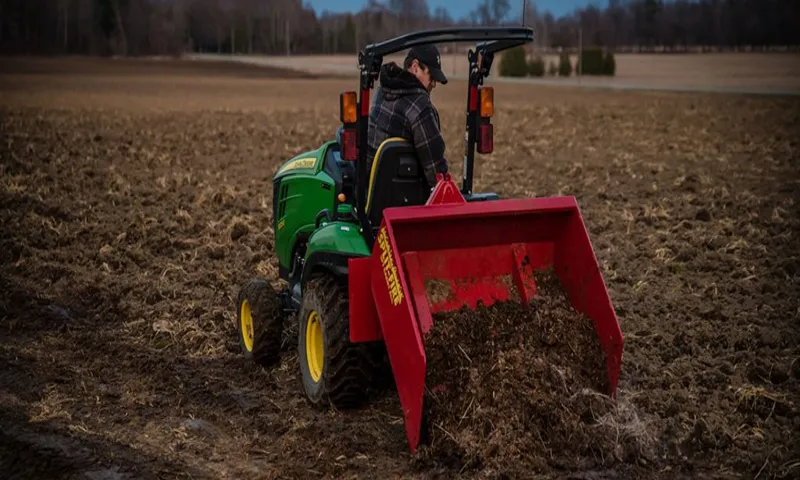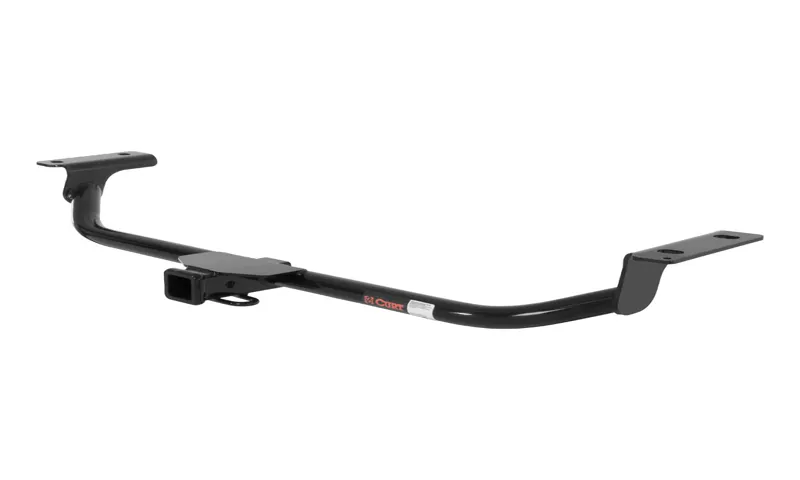So you’re planning a road trip or perhaps you need to transport some heavy equipment, and you’re wondering how much weight a class 3 hitch can carry. Well, you’ve come to the right place! Let’s dive into the details and get you the answers you’re looking for. When it comes to hitches, there are different classes that determine their weight carrying capacities.
Class 3 hitches are known for their robustness and ability to handle considerable loads. These hitches are commonly used for towing medium-sized trailers, such as boats, campers, or even small utility trailers. But just how much weight can a class 3 hitch handle? Well, the answer may vary depending on a few factors.
The first and most crucial factor is the vehicle’s towing capacity. Class 3 hitches are typically designed to fit full-sized trucks, SUVs, and vans, which often have higher towing capacities than smaller vehicles. The second factor to consider is the hitch’s specific weight capacity.
Class 3 hitches can typically handle loads ranging from 3,500 to 8,000 pounds, depending on the make and model. It’s crucial to check the owner’s manual or consult with the manufacturer to determine the exact weight capacity of your specific class 3 hitch. Now, you might be thinking, “That’s great, but how do I know if my vehicle can handle that much weight?” Well, this brings us to the third factor: your vehicle’s tow rating.
This rating, also known as the Gross Vehicle Weight Rating (GVWR), indicates the maximum weight your vehicle can safely tow. It takes into account factors such as the engine power, transmission, suspension, and braking system. To find your vehicle’s tow rating, you can check the owner’s manual, look for a sticker on the driver’s side door jamb, or consult the manufacturer’s website.
It’s crucial to never exceed your vehicle’s tow rating, as doing so can put undue stress on your vehicle and compromise your safety on the road. In summary, a class 3 hitch can handle a considerable amount of weight, typically ranging from 3,500 to 8,000 pounds. However, it’s crucial to consider your vehicle’s tow rating and the specific weight capacity of your hitch to ensure safe and efficient towing.
Table of Contents
Understanding Class 3 Hitches
If you’re wondering how much weight a class 3 hitch can carry, you’ve come to the right place. Class 3 hitches are popular among vehicle owners because they offer a significant increase in towing capacity compared to lower classes. These hitches are designed to handle more weight, typically up to 6,000 pounds of gross trailer weight (GTW) and up to 600 pounds of tongue weight (TW).
This makes them ideal for towing larger trailers, boats, or other heavy objects. Class 3 hitches are commonly found on SUVs, trucks, and full-size vans, providing the strength and durability needed for heavy-duty towing. So, whether you’re planning a camping trip or need to transport heavy equipment, a class 3 hitch is a reliable and capable option.
What is a class 3 hitch?
class 3 hitch, understanding class 3 hitches

How are hitches classified?
Class 3 hitches are a specific type of trailer hitch, and they are classified based on their weight carrying capacity. These hitches are designed to handle heavy-duty towing and are usually capable of supporting up to 6,000 to 8,000 pounds of trailer weight. Class 3 hitches are great for hauling larger trailers, such as those used for camping, boating, or even small utility trailers.
They are often used on trucks and SUVs due to their high towing capacity. When choosing a Class 3 hitch, it’s important to consider the gross trailer weight (GTW) and tongue weight (TW) of the trailers you plan on towing to ensure that the hitch can safely handle the load. So, if you’re in need of a stronger hitch for your heavy-duty towing needs, a Class 3 hitch may be the perfect choice for you.
Weight Capacity of Class 3 Hitches
If you’re wondering how much weight a class 3 hitch can carry, you’ve come to the right place. Class 3 hitches are known for their impressive weight capacity, making them ideal for towing heavy loads. On average, a class 3 hitch can handle up to 6,000 pounds of gross trailer weight (GTW) and 600 pounds of tongue weight (TW).
This means you can confidently tow a wide range of trailers, including larger boats, campers, and even some small to medium-sized cars. Just make sure to check your vehicle’s towing capacity to ensure that it can safely handle the weight you want to tow. With a class 3 hitch, you can have peace of mind knowing that you have the strength and reliability to handle your towing needs.
So, whether you’re hitting the road for a weekend getaway or moving heavy equipment, a class 3 hitch has got you covered.
Average weight capacity
weight capacity, class 3 hitches
Factors that affect weight capacity
A factor that affects the weight capacity of a class 3 hitch is the design and construction of the hitch itself. Class 3 hitches are typically made with heavier gauge steel and have a larger size and weight rating compared to lower class hitches. This allows them to handle more weight without bending or breaking.
Another factor that affects weight capacity is the mounting method used for the hitch. Hitches that are bolted directly to the frame of the vehicle have a higher weight capacity compared to hitches that are mounted to the bumper or bumper brackets. The strength and stability of the mounting points play a crucial role in determining the weight capacity of the hitch.
Additionally, the weight distribution of the load being towed can also affect the weight capacity. If the weight is evenly distributed over the trailer and hitch, the weight capacity can be maximized. However, if the weight is concentrated on one part of the trailer or hitch, it can exceed the weight capacity and lead to instability or damage.
Overall, the weight capacity of a class 3 hitch is determined by a combination of factors including the design and construction of the hitch, the mounting method, and the weight distribution of the load.
Examples of weight capacity
weight capacity, class 3 hitches A Class 3 hitch is designed to handle heavier loads than Class 1 or Class 2 hitches, making it the go-to choice for towing large trailers or recreational vehicles. The weight capacity of a Class 3 hitch can vary depending on the specific make and model, but generally, it can handle up to 5,000 pounds of gross trailer weight and 500 pounds of tongue weight. This means that you can confidently tow a wide range of items, from small boats to large campers or even a car trailer.
However, it is important to note that the weight capacity of a Class 3 hitch also depends on other factors, such as the vehicle’s towing capacity and the presence of any additional equipment, such as weight distribution hitches or sway control devices. If you are unsure about the weight capacity of your Class 3 hitch, it is always best to consult your vehicle’s owner’s manual or a professional installer to ensure that you are towing within safe limits.
Determining the Weight of Your Load
If you’re wondering how much weight a class 3 hitch can carry, you’ve come to the right place. A class 3 hitch is designed for heavy-duty towing and can handle a significant amount of weight. However, the exact weight capacity can vary depending on the specific hitch and vehicle.
It’s important to consult your vehicle’s owner’s manual or contact the manufacturer to determine the maximum weight your class 3 hitch can safely carry. Remember, exceeding the weight capacity of your hitch can result in serious safety issues, so it’s always best to err on the side of caution and ensure you’re within the recommended limits.
How to calculate the weight of your load
calculating the weight of your load Determining the Weight of Your Load When it comes to transporting heavy items, knowing the weight of your load is crucial. Whether you are moving furniture, shipping goods, or planning a road trip with your RV, understanding the weight of your load helps ensure safety and compliance with regulations. But how do you go about calculating the weight accurately? Firstly, you need to gather all the necessary information.
Start by obtaining the weight of the individual items or pallets that make up your load. You can do this using a scale specifically designed for weighing heavy objects or by referencing the weight provided by the manufacturer. If there are multiple items, add up their individual weights to get the total weight.
Next, consider any additional factors that may affect the total weight. Are there any packing materials, such as boxes or crates, that need to be included in the calculation? These can add extra weight to your load and should be accounted for. Additionally, think about the fuel, water, or other liquids that might be present in your load.
These can significantly increase the weight, especially in the case of large vehicles like RVs or trucks. It’s important to measure these quantities accurately and factor them into your calculation. If you are transporting goods, don’t forget to account for any shrinkage or waste that might occur during the journey.
This can happen due to spillage, breakage, or other unforeseen circumstances. Adding a buffer to your estimated weight can help compensate for these losses. Finally, when calculating the weight of your load, consider any legal limitations or restrictions that may apply.
This is especially important when it comes to shipping or transporting goods by road. Different countries and regions have specific weight restrictions that you must adhere to. Exceeding these limits can result in fines or even the impounding of your vehicle.
Common items and their weight
weighing items, weight of load, determining weight
Towing Safety Tips
When it comes to towing, safety should always be the number one priority. One important factor to consider is how much weight your class 3 hitch can carry. A class 3 hitch is typically rated to tow up to 6,000 pounds with a maximum tongue weight of 600 pounds.
However, it’s crucial to check your vehicle’s owner’s manual to ensure you stay within the recommended limits. Exceeding the weight capacity of your hitch can cause serious damage to your vehicle and compromise your safety on the road. It’s also important to properly distribute the weight of your load to maintain stability while towing.
Always make sure the trailer is securely connected to the hitch and that all safety chains are properly attached. Additionally, consider the weight distribution and braking capabilities of your vehicle when determining how much you can safely tow. So, before you hit the road with your hitch, take the time to know the limits and stay within them to ensure a safe and enjoyable towing experience.
Understanding towing capacity and weight distribution
towing capacity, weight distribution, towing safety tips
Importance of proper trailer loading
Towing Safety Tips When it comes to towing, proper trailer loading is crucial for ensuring a safe and smooth journey. The way you load your trailer can have a significant impact on your vehicle’s handling and stability, as well as the overall safety of you and your fellow drivers on the road. So, here are some towing safety tips to keep in mind:
Distribute the weight evenly: One of the most important aspects of proper trailer loading is ensuring that the weight is distributed evenly. This means placing the heaviest items in the center of the trailer and spreading the load as evenly as possible. Uneven weight distribution can cause the trailer to sway or fishtail, leading to loss of control and potentially causing an accident.
Don’t exceed the weight capacity: Every trailer has a specific weight capacity that should not be exceeded. It’s essential to know the weight limits of your trailer and make sure that you don’t overload it.
Exceeding the weight capacity can put excessive strain on the trailer and its tires, increasing the risk of a blowout or structural failure. Use appropriate tie-downs: Securing your load properly is critical for towing safety.
Use high-quality tie-downs and make sure that they are tightly secured to prevent any shifting or movement of the cargo during transit. Loose items can not only cause damage to your trailer but also pose a danger to other vehicles on the road if they fall off.
Check tire pressure: Before hitting the road, always check the tire pressure on both your vehicle and the trailer. Underinflated tires can lead to poor handling and reduced fuel efficiency, while overinflated tires can be more prone to blowouts. Maintaining proper tire pressure is key to ensuring a safe and smooth towing experience.
Safety precautions when using a class 3 hitch
class 3 hitch, towing safety tips, safety precautions, tow a trailer, secure connection, weight distribution, braking system, safety chains, visibility, trailer sway, proper equipment, emergency situations, towing capacity, rearview mirrors, blind spots, signaling, speed limits, maintenance checks When it comes to towing a trailer, ensuring safety should be your top priority. If you have a class 3 hitch, it’s important to follow some safety precautions to avoid accidents and mishaps on the road. First and foremost, make sure your class 3 hitch is properly installed and can handle the weight of the trailer you’re towing.
This means checking the towing capacity of your hitch and trailer to ensure they are compatible. Additionally, check the weight distribution of the trailer to avoid any issues with the balance and stability of your vehicle. Next, always make sure you have a secure connection between your vehicle and the trailer.
Use safety chains to provide an extra layer of protection in case the hitch fails. Make sure the safety chains are properly attached and not dragging on the ground. Maintaining good visibility is also crucial when towing a trailer.
Adjust your rearview mirrors to provide a clear view of the trailer and any blind spots. Remember to use your turn signals and give yourself plenty of time and space to make lane changes or turns. One common concern when towing a trailer is trailer sway.
This can occur when the trailer starts to move from side to side, potentially causing loss of control of the vehicle. To prevent trailer sway, make sure your trailer is loaded correctly and evenly distributed. If you do experience trailer sway, avoid using your brakes and instead gradually reduce your speed until the sway stops.
Lastly, be prepared for emergency situations. Have the proper equipment on hand, such as a jack and spare tire, in case of a flat or other mechanical issues. Familiarize yourself with the proper steps to take in the event of a breakdown or accident while towing a trailer.
Conclusion
In the automotive world, it’s a well-known fact that size matters. And when it comes to hitches, the class 3 hitch is the goldilocks of the towing world – not too big, not too small, but just right. So how much can a class 3 hitch carry, you ask? Well, strap in and prepare to be amazed, because this bad boy can handle some serious weight.
With a maximum gross trailer weight of up to 6,000 pounds and a tongue weight capacity of up to 600 pounds, the class 3 hitch is the Hercules of towing. Just think about it for a moment. 6,000 pounds is the equivalent of 30 car-sized watermelons or 120 golden retrievers.
It’s like having the power to tow your own personal zoo or a small fleet of food trucks. And with a tongue weight capacity of 600 pounds, you can rest easy knowing that your trailer isn’t going to wobble and dance behind you like a teenager at a Taylor Swift concert. But wait, there’s more! The class 3 hitch also comes with the added bonus of versatility.
It’s compatible with a wide range of vehicles, from SUVs to pickup trucks, giving you the freedom to tow whatever your heart desires. Whether you’re hauling a camper for an epic adventure or helping a friend move their entire shoe collection (seriously, who needs that many shoes?), the class 3 hitch has got your back. So, there you have it – the class 3 hitch is the Superman of the towing world.
It can carry more weight than you ever thought possible, it’s compatible with a variety of vehicles, and it’s ready to tackle any towing challenge you throw at it. Forget about “how much can a class 3 hitch carry” – the real question should be “what can’t it carry?” So go forth and tow with confidence, knowing that your class 3 hitch has your back. Happy towing!”
FAQs
How much weight can a class 3 hitch carry?
A class 3 hitch can typically carry up to 5,000 pounds of weight.
Can a class 3 hitch carry a trailer?
Yes, a class 3 hitch is designed for towing trailers and can handle a significant amount of weight.
Is a class 3 hitch suitable for towing a boat?
Yes, a class 3 hitch is typically recommended for towing boats as they can handle the weight and stress of pulling a watercraft.
What types of vehicles can be equipped with a class 3 hitch?
Class 3 hitches are commonly found on trucks, SUVs, and larger sedans that have a higher towing capacity.
Can a class 3 hitch be installed on a smaller car?
While it is technically possible to install a class 3 hitch on a smaller car, it is not recommended as the vehicle may not have the necessary towing capacity and stability to safely tow heavier loads.
Are there any legal restrictions for using a class 3 hitch?
The legal restrictions for using a class 3 hitch vary by country and state regulations. It is important to check and comply with the towing laws and regulations in your area.
How does the weight distribution affect the capacity of a class 3 hitch?
The weight distribution plays a crucial role in determining the capacity of a class 3 hitch. It is important to distribute the weight evenly and properly to optimize the towing capacity and maintain stability.
Can a class 3 hitch be used for towing a camper? A8. Yes, a class 3 hitch can typically handle the weight of towing a camper, but it is essential to check the weight limits and ensure the hitch is compatible with the specific camper model.
What are the safety precautions to consider when using a class 3 hitch?
When using a class 3 hitch, it is important to ensure that the trailer is properly attached, the load is secured and balanced, and the driver is familiar with towing safety guidelines.
Can a class 3 hitch be used for carrying bikes?
Yes, a class 3 hitch can be used to attach a bike rack for transporting bikes. However, it is important to check the weight limits and compatibility of the hitch and bike rack.
Can a class 3 hitch be used for carrying cargo carriers?
Yes, a class 3 hitch can be used to attach cargo carriers for transporting additional luggage or equipment. It is recommended to check the weight limits and ensure the cargo carrier is securely attached.
What are the advantages of a class 3 hitch compared to lower-class hitches?
Class 3 hitches offer a higher towing capacity compared to lower-class hitches, allowing for the transportation of heavier loads. They are also typically more durable and versatile in terms of towing options.



